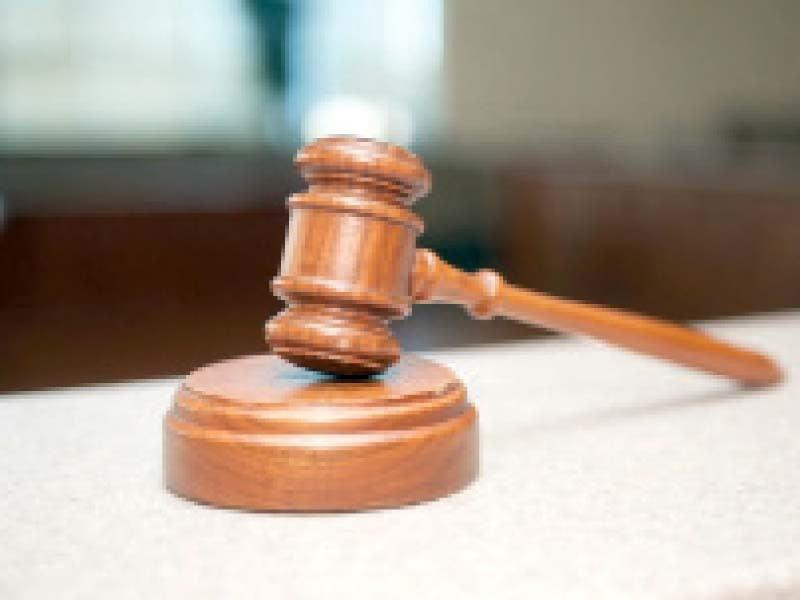ISLAMABAD:
The outgoing year (2024) will be remembered for the dominance of the executive over the higher judiciary.
Recently, Chief Justice Syed Mansoor Ali Shah sounded the alarm over what he described as one of the weakest phases in the history of the judiciary, warning of increased risks of executive overreach.
Since March 2009, the higher judiciary is considered one of the most powerful institutions in the country.
The judiciary dominated parliament and the executive and played a key role in shaping national politics.
Even the security establishment avoided confronting the higher judiciary after the reinstatement of judges deposed by General Pervez Musharraf in March 2009.
However, instead of strengthening civil institutions, the judiciary became a tool to weaken parliament and civilian governments.
The clash between Supreme Court judges began after the Panama Papers ruling was leaked, becoming a key factor in weakening the judiciary as an institution.
After the presidential challenge against former Chief Justice of Pakistan Qazi Faez Isa, the apex court split into two camps. A section of judges received support from the Pakistan Tehreek-e-Insaf (PTI) and the security establishment led by former army chief General Qamar Javed Bajwa. The other side supported ex-CJP Isa in his difficult times. Major political parties namely Pakistan Muslim League Nawaz (PMLN) and Pakistan People’s Party (PPP) supported these judges during the PTI regime.
Even after Qazi Faez Isa was sworn in as CJP in October 2023, the clash within the SC continued over the same ideological grounds. Two judges, Ijazul Ahsan and Sayyad Mazahar Ali Akbar Naqvi, were forced to resign.
The top court headed by former CJP Isa had forced other state institutions to hold general elections on February 8.
However, the results show that the vote was not carried out in a transparent manner.
Imran Khan’s PTI accused former CJP Isa and the Election Commission of Pakistan (ECP) of rigging the February 8 elections. A level playing field was not provided to the PTI. The party claimed that the results were altered through Form 45. Even the Rawalpindi commissioner had publicly alleged that the elections were rigged.
Former CJP Isa had acted as guarantor of the current regime throughout the outgoing year. As head of the institution, he remained silent on the manipulation of court proceedings in former Prime Minister Imran Khan’s cases. His bias towards the PTI was evident during the hearings.
After the February 8 elections, the judges of the Islamabad High Court (IHC) raised their voice over the agencies’ interference in judicial functions. Six IHC judges wrote a letter to the Supreme Judicial Council (SJC) seeking guidance on this sensitive issue.
However, the leaders of the higher judiciary did not give a proper response to the powerful circles on the letter of the IHC judges. Instead of supporting the stand of the IHC judges, former CJP Isa considered their letter as a conspiracy against him.
Even suo motu proceedings were initiated based on the judges’ letter, but no deterrence was created.
Subsequently, a majority of SC judges issued a strong ruling, declaring that the PTI was entitled to get reserved seats. That verdict upset powerful circles. Even a section of South Carolina judges were upset by the majority decision, seeing it as an attempt to stop the government’s attempt to pass a constitutional amendment to restrict the powers of the higher judiciary.
After the July 12 order in the reserved seats case, former CJP Isa seemed increasingly reactionary. He played a key role in facilitating the current government’s passage of the constitutional amendment. Firstly, former CJP Isa overturned the decisions of the Lahore High Court and allowed recount in three National Assembly (NA) constituencies by restoring the orders of the Election Commission of Pakistan (ECP). Subsequently, the PMLN won three seats thanks to the vote recount.
He also reconstituted a committee working under the Supreme Court Procedure and Practice Act, 2023 from his “like-minded” bench to review the judgment that held that the vote of defecting legislators would not be counted under Article 63A of the Constitution. Reports suggest that efforts were made within the SC to prevent Justice Syed Mansoor Ali Shah from becoming the next CJP.
On the other hand, Justice Shah did not give certain assurances at the right time for the continuity of the system that was being provided during the era of former CJP Isa. That’s why he was replaced by a junior candidate.
PPP president Bilawal Bhutto Zardari himself admitted that the 26th constitutional amendment was not possible in the absence of former CJP Isa.
Justice Isa also nominated LHC Chairman Malik Shahzad Ahmad Khan for his elevation to the SC at a critical time. Justice Malik Shahzad was taking steps to stop executive interference in trial court proceedings.
Later, the court headed by Justice Isa also set aside the LHC judgment in which ECP was ordered to notify the electoral tribunals nominated by the LHC judge. Now some retired judges have been notified as electoral tribunals in Punjab. This could not have been possible without the support of former CJP Isa.
Following the passage of the 26th constitutional amendment in October, the executive’s role has increased in appointing judges and forming courts.
The executive has the upper hand in the new Judicial Commission of Pakistan (JCP), which appoints judges and forms constitutional courts.
The government has managed to establish a like-minded constitutional court in both the Supreme Court and the Sindh High Court. Senior SC judges appear powerless in the face of the executive’s domineering influence over the judiciary, raising concerns about their independence in the public eye.




